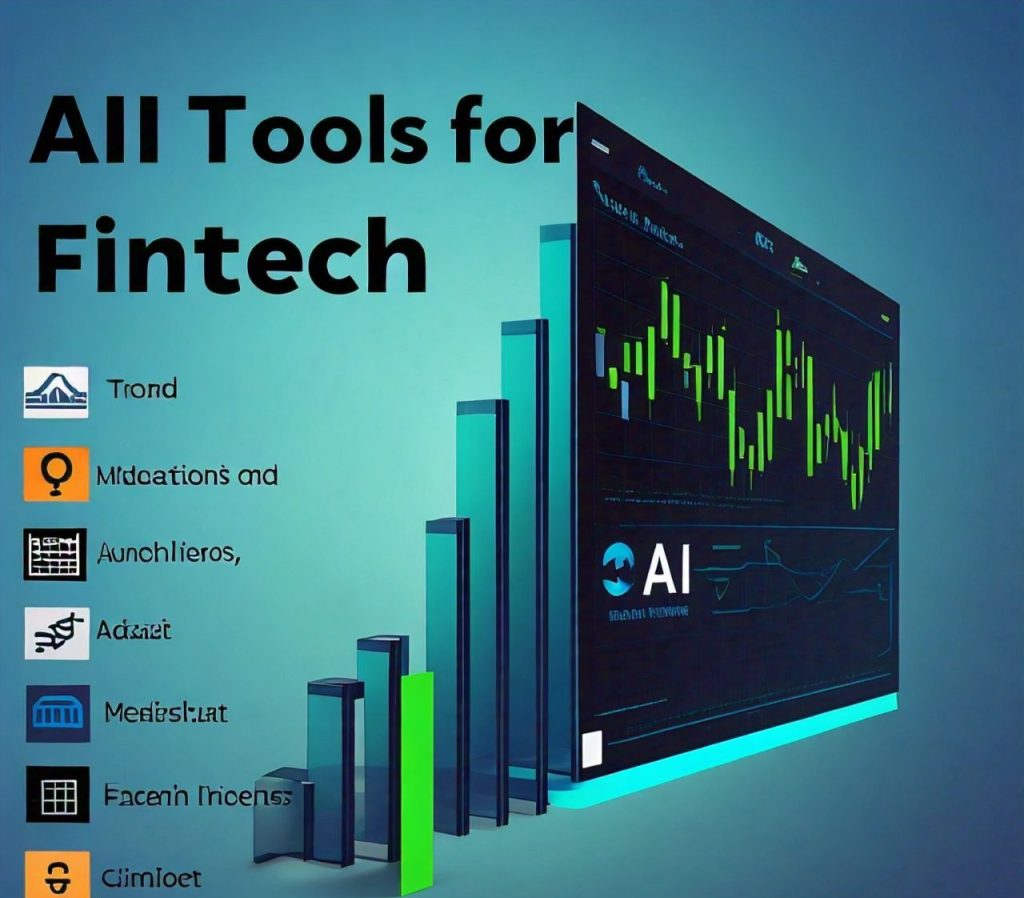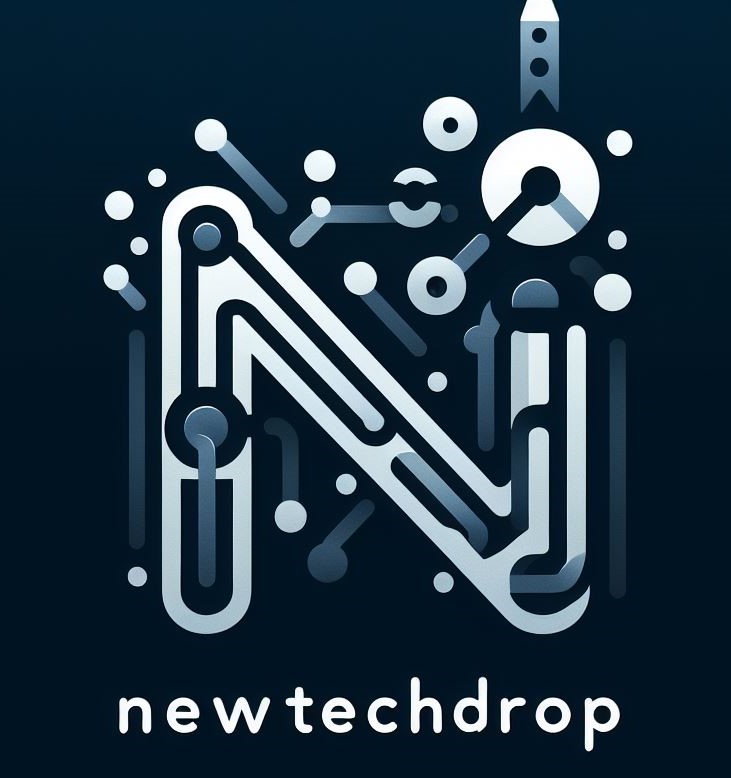The financial technology (FinTech) has witnessed a significant change in recent years. Thanks to the integration of Artificial Intelligence (AI) into financial operations. AI tools have streamlined financial processes, improved accuracy, and enhanced customer experiences.
The integration of AI has indeed brought about a paradigm shift, transforming every aspect of financial services. AI tools have totally transformed the way financial institutions operate.
Gone are the days of manual data entry, tedious paperwork, and long hours of processing time. AI has automated many repetitive tasks, freeing up resources for more strategic and creative endeavors. Now, with AI in FinTech, financial institutions can now offer personalized services, tailored to meet the unique needs of individual customers. Starting from fraud detection to credit risk assessment, AI has improved the accuracy and speed of financial decision-making.
In this article, we’ll delve into the top AI tools that are making wave in the FinTech landscape. We’ll explore how these advanced technologies are enhancing customer experiences, reducing costs, and improving overall efficiency in financial services. From chatbots to robo-advisors, and from machine learning to natural language processing. We’ll examine the innovative solutions that are redefining the future of finance. Join us on this journey as we uncover the exciting possibilities of AI in FinTech.
Firstly, what is financial technology (FinTech)?
Financial Technology (FinTech) simply means the integration of technology into financial services, aiming to improve and automate financial processes. It makes financial systems more efficient and create new financial products and services.
The scope of FinTech include but not limited to the following range of financial areas:
- Payments and transactions. 2. Lending and credit. 3. Investing and wealth management. 4. Insurance. 5. Banking and financial institutions.
- Cryptocurrencies and blockchain.
Technologies used in FinTech.
FinTech uses various technologies, such as:
- Artificial Intelligence (AI).
- Machine Learning (ML).
- Big Data Analytics.
- Cloud Computing.
- Internet of Things (IoT).
- Blockchain and Distributed Ledger Technology (DLT).
Examples of FinTech companies include:
- PayPal (payments)
- Stripe (payments)
- Lending Club (lending)
- Robinhood (investing)
- Square (payments and point-of-sale)
- Coinbase (cryptocurrencies)
Best AI tools for Financial Technology (FinTech).

Now, let’s see the best AI tools that are making waves in the FinTech industry. The top AI tools for FinTech are:
A. Fraud Detection with Machine Learning.
Fraud detection is a critical aspect of financial services, and machine learning algorithms have proven to be a powerful tool in this fight. By analyzing patterns and identifying suspicious activity, AI-powered systems can detect fraudulent transactions in real-time, reducing financial losses and protecting customers’ sensitive information.
Here are five of the best AI tools for fraud detection:
- Feedzai: Feedzai’s machine learning platform uses real-time data to detect fraud. It reduces false positives while improving accuracy.
- SAS Fraud Management: SAS’s AI-powered fraud detection system uses machine learning and predictive analytics to identify high-risk transactions.
- IBM Safer Payments: IBM’s fraud detection tool uses machine learning and analytics to identify suspicious activity and prevent fraudulent transactions.
- FICO Falcon Fraud Manager: FICO’s fraud detection system uses machine learning and predictive analytics to identify high-risk transactions and reduce financial losses.
- Ripple’s Machine Learning Fraud Detection: Ripple’s AI-powered fraud detection tool uses machine learning and real-time data to identify suspicious activity and prevent fraudulent transactions.
These AI tools listed above have transformed fraud detection in FinTech, enabling financial institutions to stay one step ahead of fraudsters and protect their customers’ assets.
These machine algorithms analyze various data points, such as:
- Transaction history
- User behavior
- Geolocation
- IP addresses
- Device information
By leveraging machine learning and AI, financial institutions can reduce fraud losses, improve customer trust, and enhance their overall security posture.
B. Natural Language Processing (NLP) for Chatbots.
NLP enables chatbots to understand customer queries, providing personalized support and resolving issues efficiently.
Natural Language Processing (NLP) for chatbots is a branch of artificial intelligence (AI) that enables computers to understand, interpret, and generate human language. It allows chatbots to comprehend and respond to user inputs in a more human-like way. It creates a conversational interface that simulates human conversation.
5 Best AI platforms of Natural Language Processing for chatbots.
Here are five AI platforms for NLP for chatbots in FinTech:
- Genism: An AI platform that focuses on topic modeling tasks.
- SpaCy: A platform that performs quickly and is well-documented.
- IBM Watson: This offers users a range of AI-based services.
- Natural Language Toolkit (NLTK): Enables users to create programs that are compatible with human language data.
- Chatfuel: A point-and-click chatbot builder that is easy to use and offers some robust functionality for handling new phrases.
C. Credit Risk Assessment with Predictive Analytics for FinTech:
Predictive analytics evaluates creditworthiness, minimizing lending risks. AI algorithms analyze data, predicting borrower reliability.
Here are 5 AI platforms for credit risk assessment with predictive analytics:
- FICO: FICO’s AI-powered credit risk assessment platform uses machine learning and predictive analytics to evaluate creditworthiness, providing lenders with accurate borrower risk scores.
- Experian: Experian’s Credit Analytics platform leverages AI and machine learning to assess credit risk, providing lenders with detailed borrower profiles and risk assessments.
- SAS: SAS’s Credit Risk Management platform uses AI and predictive analytics to evaluate creditworthiness, detecting potential risks and opportunities for lenders.
- IBM: IBM’s Credit Risk Assessment platform utilizes AI and machine learning to analyze borrower data, predicting creditworthiness and minimizing lending risks.
- Zest AI: Zest AI’s credit risk assessment platform uses machine learning and predictive analytics to evaluate borrower creditworthiness, providing lenders with accurate risk assessments and insights.
These platforms analyze various data points, including:
- Credit history
- Financial statements
- Social media activity
- Online behavior
- Public records
Hence, by using these AI platforms and predictive analytics, lenders can make more informed decisions, reduce credit risk, and improve overall lending outcomes.
D. Robo-Advisors for Investment Management In FinTech:
AI-driven robo-advisors offer tailored investment advice, optimizing portfolio performance and reducing fees.
Here are 5 best AI platforms for robo-advisors in investment management:
- Betterment: Betterment’s AI-powered robo-advisor provides personalized investment advice, optimizing portfolios and reducing fees.
- Wealthfront: Wealthfront’s AI-driven robo-advisor offers tailored investment guidance, leveraging machine learning to optimize portfolio performance.
- Schwab Intelligent Portfolios: Schwab’s AI-powered robo-advisor provides automated investment management, offering diversified portfolios and low fees.
- Vanguard Personal Advisor Services: Vanguard’s AI-driven robo-advisor offers personalized investment advice, combining human expertise with AI-powered portfolio optimization.
- SigFig: SigFig’s AI-powered robo-advisor provides tailored investment guidance, using machine learning to optimize portfolio performance and reduce fees.

E. Identity Verification with Facial Recognition:
Facial recognition technology ensures secure authentication, preventing identity fraud and enhancing security.
The following are 5 best AI platforms for identity verification with facial recognition:
- Amazon Recognition: Amazon’s AI-powered facial recognition platform provides highly accurate identity verification, detecting and preventing fraud.
- Microsoft Azure Face API: Microsoft’s facial recognition platform uses AI to verify identities, offering high accuracy and robust security features.
- Google Cloud Vision API: Google’s AI-powered facial recognition platform provides fast and accurate identity verification, ideal for various applications.
- Face++: Face++’s AI-driven facial recognition platform offers highly accurate identity verification, used in various industries, including finance and security.
- Onfido: Onfido’s AI-powered facial recognition platform provides secure identity verification, using machine learning to detect fraud and enhance security.
F. Personalized Banking with Customer Segmentation:
AI-driven customer segmentation enables banks to offer targeted services, improving customer satisfaction and loyalty.
Below are list of 5 best AI platforms for personalized banking with customer segmentation:
- Salesforce Einstein: Salesforce’s AI-powered customer segmentation platform helps banks create personalized experiences, improving customer satisfaction and loyalty.
- IBM Watson Customer Experience: IBM’s AI-driven customer segmentation platform uses machine learning to analyze customer data, enabling banks to offer targeted services.
- SAS Customer Intelligence: SAS’s AI-powered customer segmentation platform helps banks identify and segment customers, offering personalized experiences and improving loyalty.
- Adobe Target: Adobe’s AI-driven customer segmentation platform uses machine learning to analyze customer behavior, enabling banks to deliver personalized experiences.
- FICO Customer Segmentation: FICO’s AI-powered customer segmentation platform uses advanced analytics to identify and segment customers, helping banks offer targeted services.
Conclusion:
These AI platforms have transformed the banking and Financial Technology industry, enabling banks and FinTech companies to provide personalized experiences and improve customer relationships.
They have totally transformed FinTech by enhancing security, efficiency, and customer experiences. Embracing these innovations, financial institutions can stay competitive and build a stronger future.




Leave a Reply